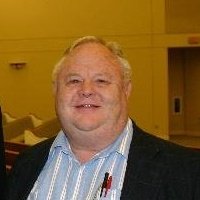This article has multiple issues. Please help improve it or discuss these issues on the talk page . (Learn how and when to remove these messages)
|
John Frame | |
|---|---|
 2009 | |
| Born | April 8, 1939[ citation needed ] Pittsburgh, Pennsylvania, U.S. |
| Occupations | Theologian, author |
| Spouse | Mary Grace |
| Children | 2 |
| Philosophical work | |
| Era | Late 20th and early 21st centuries |
| Region | US |
| Language | English |
| Main interests | Calvinism, Cornelius Van Til, epistemology, presuppositional apologetics, ethics, systematic theology |
| Notable works | Theology of Lordship series, Van Til: The Theologian, Introduction to Presuppositional Apologetics |
| Notable ideas | Multiperspectivalism |
John McElphatrick Frame (born April 8, 1939) is a retired American Christian philosopher and Calvinist theologian especially noted for his work in epistemology and presuppositional apologetics, systematic theology, and ethics. He is one of the foremost interpreters and critics of the thought of Cornelius Van Til. [1]
